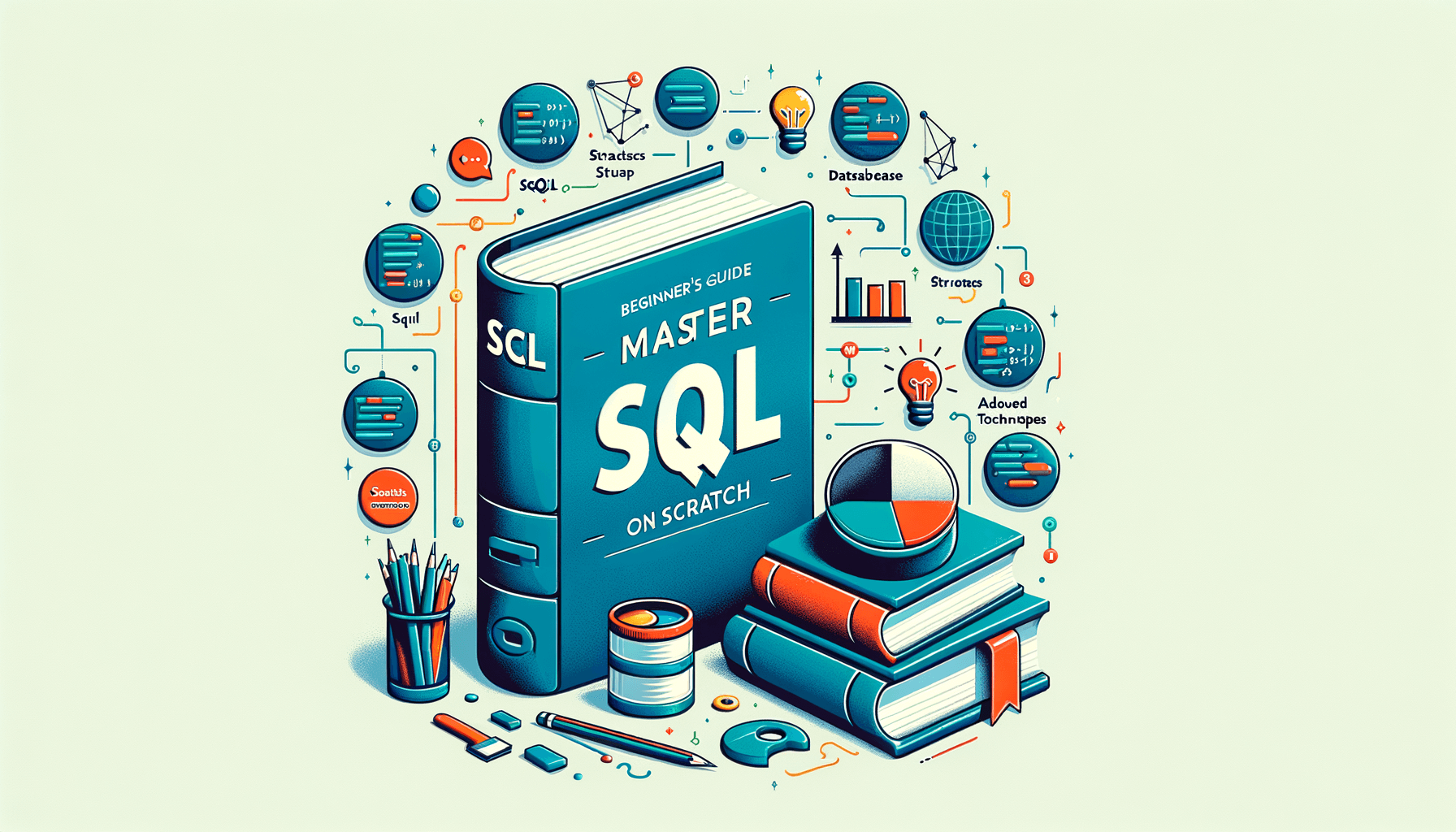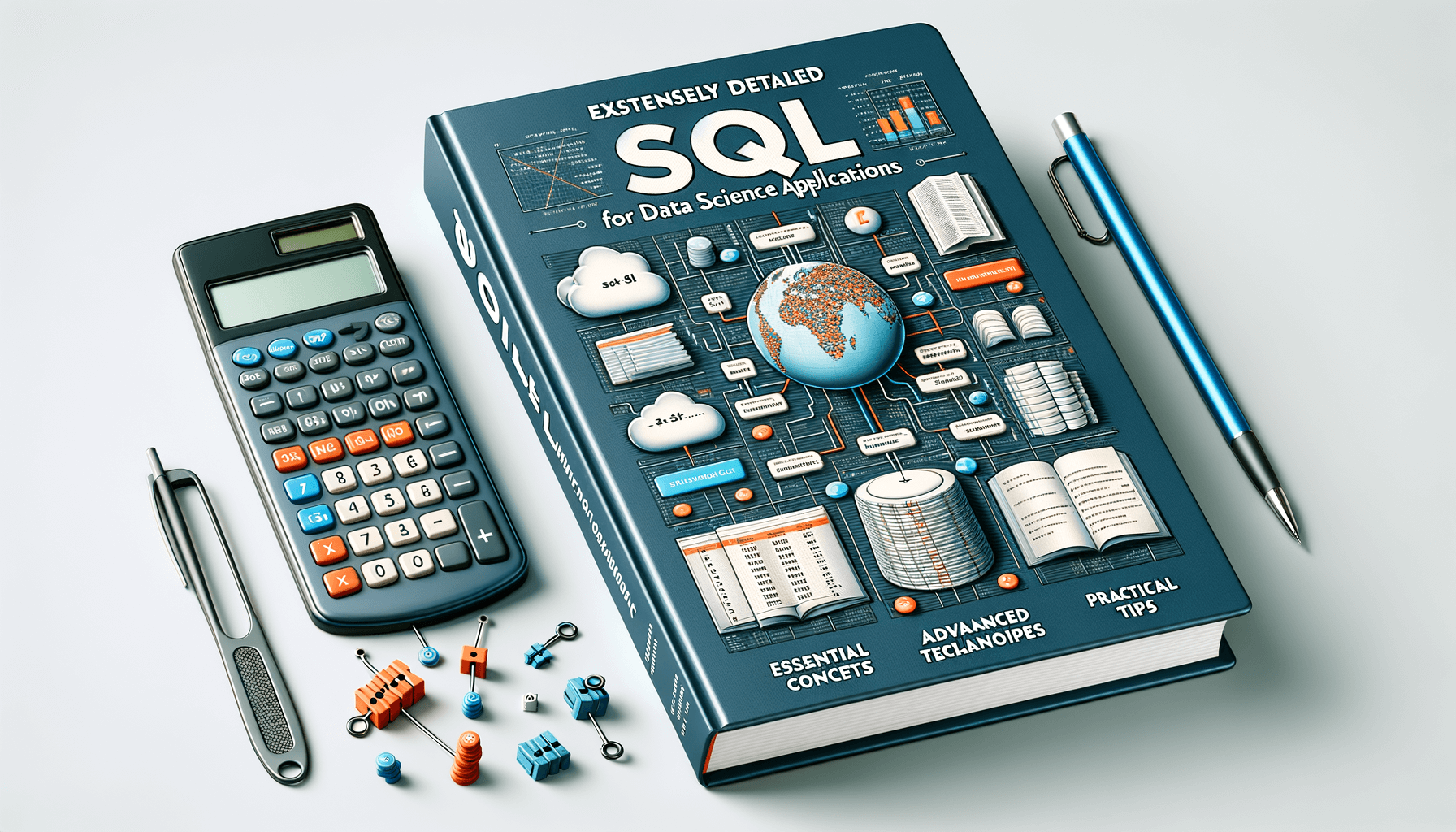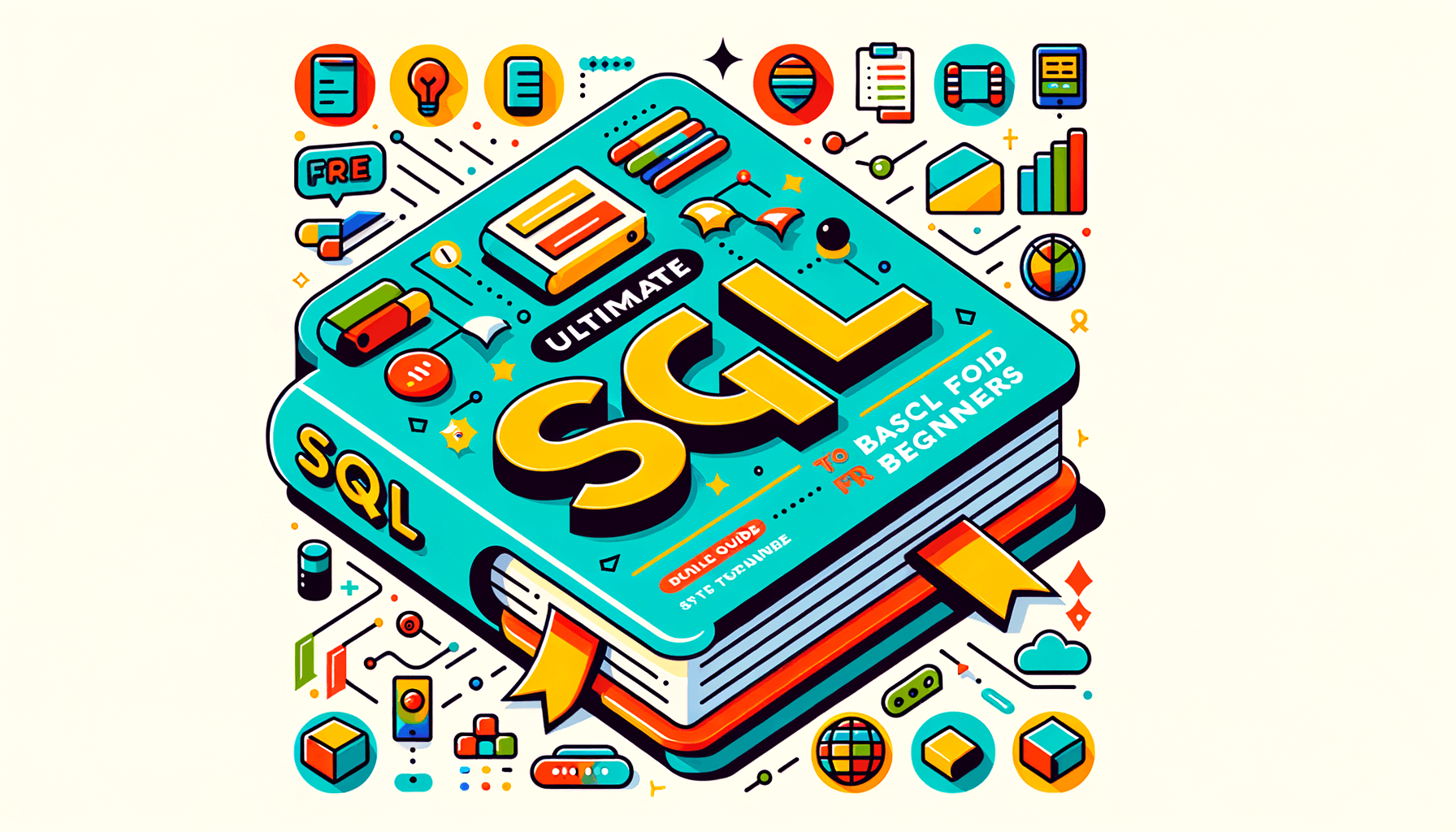A big variety of articles and resources

Learn SQL for Beginners PDF: Your Ultimate Guide to Mastering SQL from Scratch
 Sia Author and Instructor
Learn SQL
Sia Author and Instructor
Learn SQL
8 minute read
Understanding SQL and Its Importance
What is SQL?
Structured Query Language (SQL) is a powerful tool for managing and manipulating relational databases. It allows users to store, retrieve, update, and delete data efficiently. SQL is essential for anyone looking to work with databases, as it provides a standardized way to interact with data.
Why Learn SQL?
Learning SQL opens up numerous opportunities in various fields such as data analysis, software development, and database administration. With SQL, you can master the basics for beginners at your own pace. Additionally, SQL skills are highly sought after in the job market, making it a valuable addition to your skill set.
Real-world Applications of SQL
SQL is used in a wide range of applications, from small businesses to large enterprises. It is crucial for tasks such as customer relationship management (CRM), financial analysis, and inventory management. By understanding SQL, you can efficiently handle data-related tasks and make informed decisions based on data insights.
Mastering SQL basics can significantly enhance your ability to work with data, providing a strong foundation for more advanced database management and analysis techniques.
Setting Up Your SQL Environment
Choosing the Right SQL Software
Selecting the appropriate SQL software is crucial for your learning journey. There are several options available, each with its own strengths. Popular choices include MySQL, PostgreSQL, and SQLite. Evaluate your needs and choose the one that best fits your requirements.
Installing SQL Tools
To get started with SQL, you need to install a relational database management system (RDBMS) on your computer. Here are the installation instructions for the most popular RDBMS:
- MySQL: Download the installer from the official website and follow the on-screen instructions.
- PostgreSQL: Visit the PostgreSQL website, download the installer, and complete the setup process.
- SQLite: This is a lightweight option that doesn't require a server setup. Simply download the executable and you're ready to go.
Configuring Your Database
Once the installation is complete, the next step is to configure your database. This involves setting up user accounts, defining access permissions, and creating initial databases. Proper configuration ensures that your environment is secure and optimized for performance.
Setting up your SQL environment correctly from the start can save you a lot of headaches down the road. Take the time to understand each step and follow best practices.
Basic SQL Commands and Syntax
SELECT Statements
The SELECT statement is fundamental in SQL, allowing you to retrieve data from one or more tables. You can specify columns to display and use various clauses to filter and sort the results.
INSERT, UPDATE, DELETE Commands
These commands are essential for modifying data within your database. The INSERT command adds new records, the UPDATE command modifies existing records, and the DELETE command removes records.
Filtering and Sorting Data
Filtering data is done using the WHERE clause, which allows you to specify conditions. Sorting is achieved with the ORDER BY clause, enabling you to arrange the results in ascending or descending order.
Mastering these basic commands is crucial for anyone looking to excel in SQL. Platforms like sqlskillz.com vs w3schools.com offer excellent resources to help you learn at your own pace.
Working with SQL Databases
Creating and Modifying Tables
Creating and modifying tables is a fundamental aspect of working with SQL databases. Tables are the structures that hold your data, and understanding how to create and alter them is crucial. You can define columns, set data types, and establish constraints to ensure data integrity.
Understanding Data Types
Data types define the kind of data that can be stored in each column of a table. Common data types include integers, strings, and dates. Choosing the correct data type is essential for optimizing storage and ensuring accurate data retrieval.
Using Primary and Foreign Keys
Primary and foreign keys are used to establish relationships between tables. A primary key uniquely identifies each record in a table, while a foreign key links to a primary key in another table, creating a relationship between the two tables. This is vital for maintaining data integrity and enabling complex queries.
Advanced SQL Techniques
Joins and Subqueries
Mastering joins and subqueries is essential for building complex queries that combine data from multiple tables. Exploring these advanced topics will expand your SQL skills and empower you to build more sophisticated database solutions. Joins allow you to retrieve related data, while subqueries enable you to perform nested queries for more refined results.
Using Aggregate Functions
Aggregate functions in SQL, such as COUNT, SUM, AVG, MAX, and MIN, allow you to perform calculations on a set of values to return a single value. These functions are crucial for summarizing data and generating meaningful insights. For example, you can use the COUNT function to determine the number of records in a table or the SUM function to calculate the total sales for a specific period.
Indexing and Optimization
Efficient indexing and query optimization are vital for maintaining high performance in your SQL databases. Indexes help speed up data retrieval by providing quick access to rows in a table. Understanding and implementing indexing strategies can significantly improve query performance. Additionally, learning about query optimization techniques will help you write efficient and maintainable SQL code, ensuring your database applications are robust and scalable.
Keep learning, practicing, and experimenting with SQL to become proficient in handling diverse data scenarios.
Practical SQL Exercises for Beginners
To truly master SQL, hands-on practice is essential. This section provides a variety of exercises designed to help beginners solidify their understanding of SQL concepts. Challenge yourself with these exercises and watch your SQL proficiency grow!
Resources for Further Learning
Recommended Books and PDFs
To deepen your understanding of SQL, consider exploring some highly recommended books and PDFs. These resources provide comprehensive insights into various SQL concepts and practices.
- SQL For Dummies by Allen G. Taylor
- Learning SQL by Alan Beaulieu
- SQL: The Complete Reference by James R. Groff and Paul N. Weinberg
- Head First SQL by Lynn Beighley
Online Courses and Tutorials
Online courses and tutorials are excellent for interactive learning. They offer structured pathways and hands-on exercises to solidify your SQL skills.
- Codecademy's SQL Course
- Coursera's SQL for Data Science by University of California, Davis
- Udemy's The Complete SQL Bootcamp by Jose Portilla
- Khan Academy's Intro to SQL
Community and Support Forums
Engaging with the SQL community can provide additional support and insights. Forums and community groups are great places to ask questions, share knowledge, and stay updated on the latest trends.
- Stack Overflow
- Reddit's r/SQL
- SQLServerCentral
- GitHub's SQL repositories
Leveraging these resources will significantly enhance your SQL learning journey, providing both theoretical knowledge and practical experience.
Looking to expand your knowledge and skills? Visit our website to explore a wide range of courses designed to help you achieve your goals. Whether you're a beginner or looking to advance your expertise, we have something for everyone. Don't miss out on the opportunity to learn from industry experts and take your career to the next level.
Conclusion
Mastering SQL is an invaluable skill in today's data-driven world. This guide has provided you with the foundational knowledge needed to start your journey in SQL programming. From understanding basic queries to performing complex data analysis, you now have the tools to manage and analyze data efficiently. Remember, practice is key to becoming proficient in SQL. Utilize the resources and exercises provided in this guide, and don't hesitate to explore further learning opportunities. With dedication and consistent effort, you'll be able to leverage SQL to unlock powerful insights and drive data-informed decisions in your career.
Frequently Asked Questions
What is SQL and why is it important?
SQL, or Structured Query Language, is a standard programming language used for managing and manipulating relational databases. It is important because it allows users to interact with databases, retrieve data, and perform various operations efficiently.
Do I need prior programming experience to learn SQL?
No prior programming experience is required to learn SQL. It is designed to be accessible for beginners, and many resources are available to help you get started from scratch.
What are some real-world applications of SQL?
SQL is used in various real-world applications, including data analysis, web development, business intelligence, and database management. Companies use SQL to handle large volumes of data, generate reports, and support decision-making processes.
Which SQL software should I choose as a beginner?
As a beginner, you can start with popular SQL software like MySQL, PostgreSQL, or SQLite. These tools are user-friendly, widely supported, and have extensive documentation and community support.
How long does it take to learn SQL?
The time it takes to learn SQL varies depending on your background and dedication. With consistent practice, beginners can learn the basics of SQL in a few weeks, while mastering advanced techniques may take a few months.
Where can I find additional resources for learning SQL?
There are many resources available for learning SQL, including books, online courses, tutorials, and community forums. Some recommended books and PDFs, as well as online platforms like Coursera, Udemy, and Stack Overflow, can provide valuable learning materials and support.
Related Articles

Mastering SQL for Data Science: A Comprehensive Guide
7 minute read

The Ultimate Guide to Learn SQL for Beginners Free
10 minute read

Mastering SQL: Advanced Queries for Data Professionals
10 minute read


